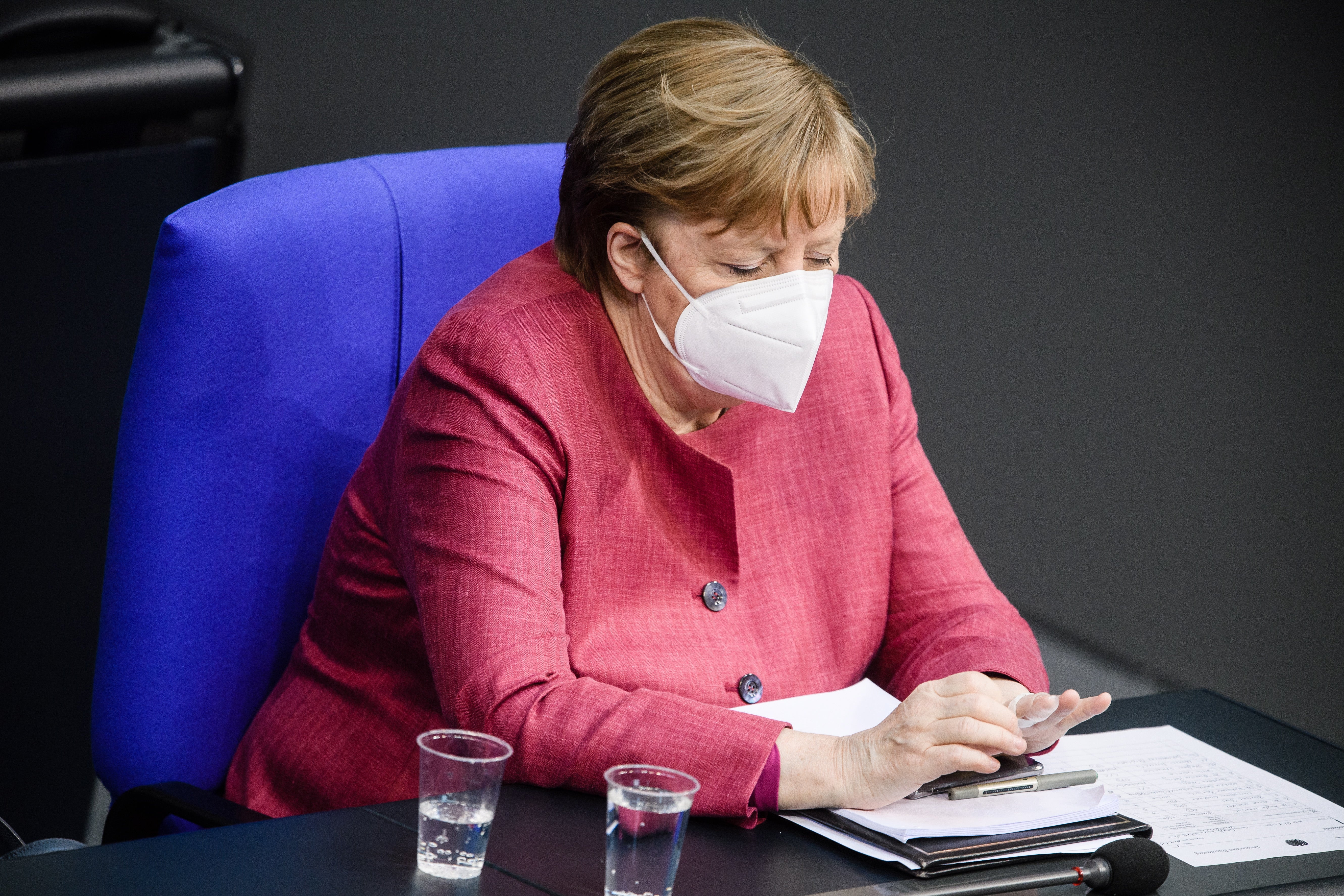‘Situation is very serious’: Merkel pushes for ‘emergency brake’ powers to prevent third wave
If passed, measures will apply to areas of Germany where the seven-day incidence of Covid is above 100 per 100,000, Matt Mathers writes

Angela Merkel is pushing parliament to pass a bill that would give the federal government powers to impose stricter Covid-19 lockdown measures in areas where the disease is spreading too quickly.
Some of the tougher rules would include restricting restaurants to take away services, limits on the number of people taking part in sport and a nighttime curfew.
The measures, which have dubbed an “emergency brake”, have been approved by Ms Merkel’s cabinet but will not become law without the approval of MPs.
If passed, they will apply to areas of Germany where the seven-day incidence of Covid is above 100 per 100,000, Ms Merkel said.
New cases of the disease are on the rise again after leveling off slightly in February and into March.
The chancellor warned the Bundestag that the situation “is very serious” as she called on lawmakers to take action.
“There is no way around it,” she said. “We need to stop this third wave of the pandemic... and to achieve this we need to better combine the strengths of the federal, state and local governments than we have been.”
Her speech to parliament came as Germany recorded more than 25,000 new cases of Covid-19 overnight and over 200 additional deaths, according to official figures.
The chancellor faces an uphill battle to get the bill through parliament, with lawmakers wary of consenting to more harsh restrictions and state governments reluctant to hand power over to the federal government.
The bill would mandate the implementation of a uniform set of rules imposed by the federal government to the affected areas, and also include non-essential store and cultural venue closures.
It seeks to end the patchwork of measures that have characterised the pandemic response across Germany's 16 states.
In Germany, lockdown measures are decided at a state level and many have expressed frustration and confusion in recent months as governors interpreted rules agreed with the federal government in different ways.
“Intensive care physicians are making one call after another for help,” Ms Merkel told parliament. “Who are we if we leave these calls unheard?" she asked. “We cannot be permitted to leave the doctors and nurses alone.”
The lower house of parliament is expected to vote on the bill next week, with the upper house to follow.
Later in the day, Ms Merkel spokesperson said she had received her vaccination shot, a dose of the AstraZeneca product.
Authorities in Germany recently restricted the use of the AstraZeneca vaccine to people aged 60 and over, due to concerns about the risk of rare blood clots detected in some people who received the shots.
Additional reporting by Associated Press
Join our commenting forum
Join thought-provoking conversations, follow other Independent readers and see their replies
Comments